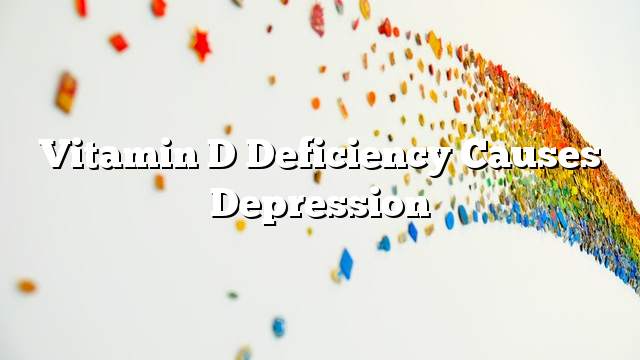Vitamin D
Vitamin D or so-called English Vitamin D , Is one of the most important mineral and nutritional elements needed by the body to carry out its daily functions and vital processes properly, it forms the basis for creating a balance of all minerals of the body, which includes phosphorus and calcium in the blood, and regulate the growth of cells and many others, and because of its importance in the body, Causes many serious problems, which may eventually kill a human being, or hamper normal growth and living.
Causes of vitamin D deficiency
There are many reasons for vitamin D deficiency, including:
- Insufficient exposure to sunlight.
- And age, especially when women reach the stage of despair.
- Infection of a disease in the small intestine that reduces the body’s absorption of this vitamin.
- Significant increase in weight.
- Malnutrition caused by erroneous diets.
- Infection of a genetic disease.
Vitamin D deficiency and depression
Vitamin D deficiency causes the person to become depressed, and his response to antidepressants is poor. Recently, he has discovered that depression is one of the most common symptoms of people with vitamin D deficiency. It is responsible for improving the neurotransmitter levels of serotonin, which significantly raises the morale in the human body. Lack of it causes fatigue, fatigue, sleep disorders, and low mood.
Sources of Vitamin D
- Fish of all kinds.
- Eggs and caviar.
- whale liver oil.
- Mushrooms.
- Dairy products.
- Mushrooms.
- the milk.
- Sun, preferably from 10 am to 3 pm.
The most important symptoms of vitamin D deficiency
- Tiredness and exhaustion.
- Head sweating greatly.
- Muscle aches and convulsions, especially when waking up.
- Multiple sclerosis and arthritis.
- Significant increase and sudden weight loss.
- Exposure to many intestinal problems.
- Persistent pain.
Daily needs of vitamin d
Here we will talk about the daily needs of vitamin D, by age group, as follows:
| Age group | international unit | Microgram / day |
|---|---|---|
| 0-12 months | 400 | 10 |
| 13 years | 600 | 15 |
| 14-18 years old | 600 | 15 |
| 19-50 years | 600 | 15 |
| 51-70 years | 600 | 15 |
| Greater than 70 years | 800 | 20 |
Benefits of Vitamin D
- Protects the bones greatly, keeps them healthy, and protects them from being fragile as they help them absorb calcium significantly.
- It protects and strengthens the immune system, thus protecting the body from disease.
- Protects your body against cancer.
- Children are protected from osteoporosis.
